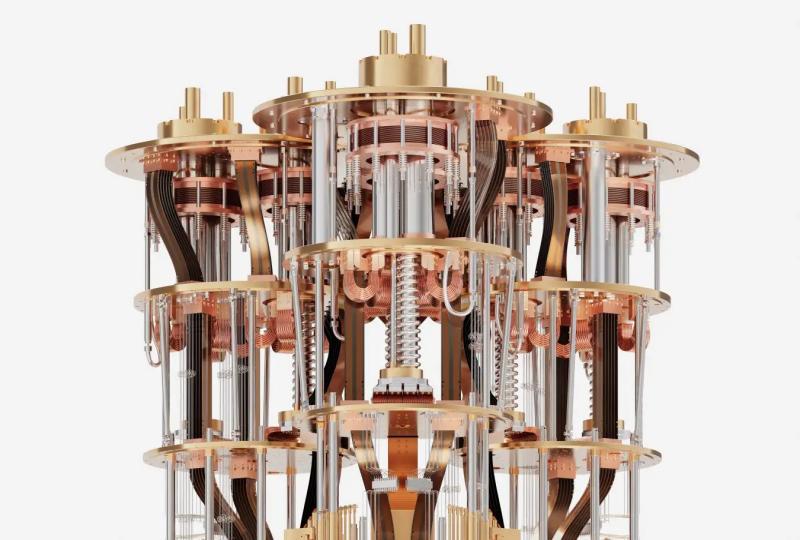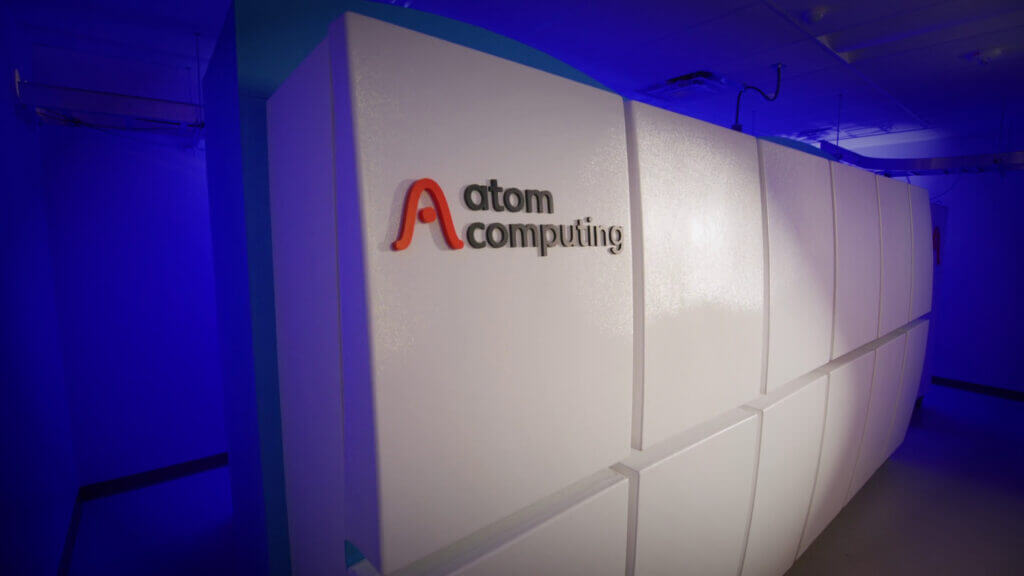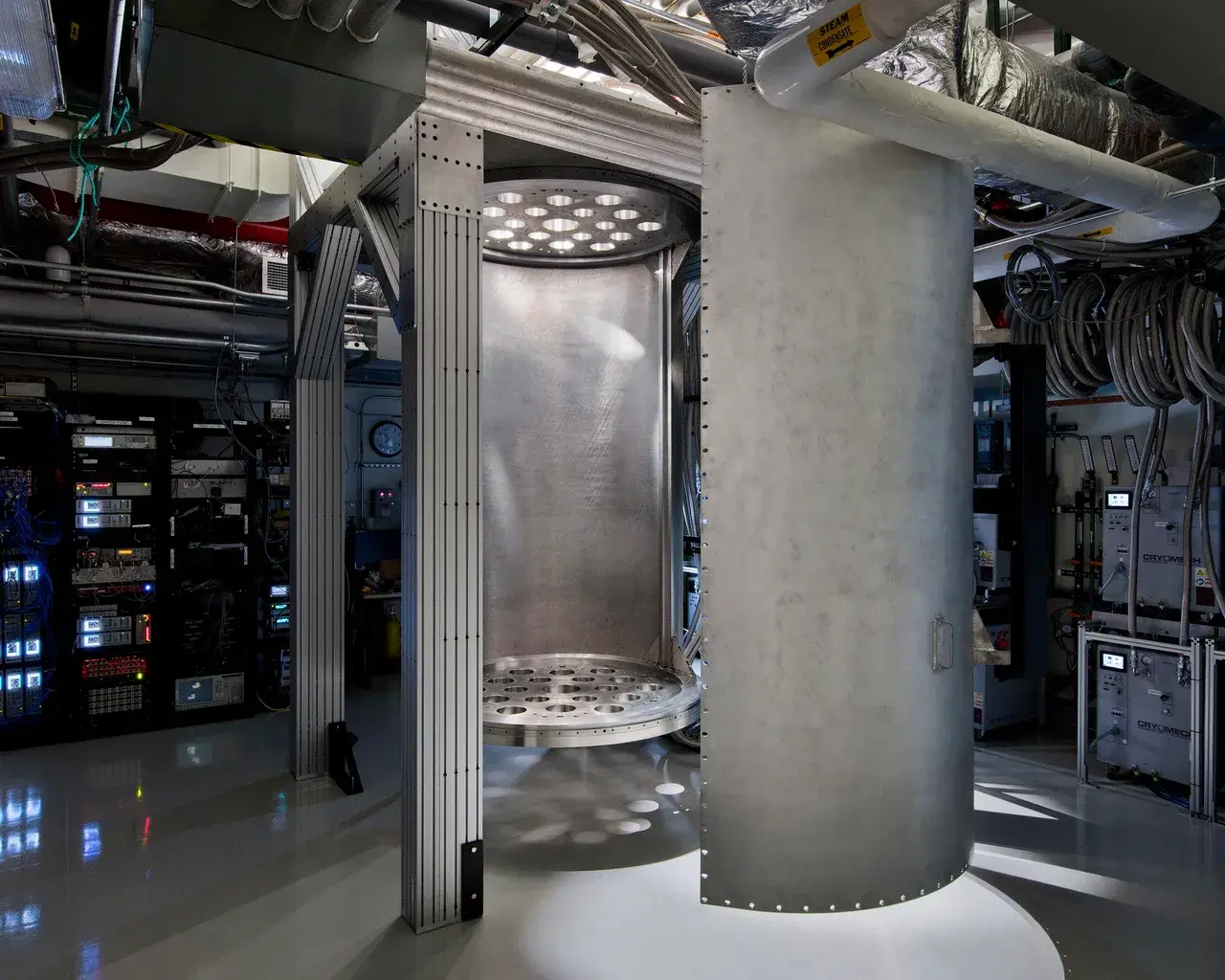Discover the World's Largest Quantum Computer in 2025
2025.01.06 · Blog Quantum computingQuantum Computing SystemsQuantum education
The world's largest quantum computer is here, featuring 1121 record-breaking qubits. In this article, we’ll take you inside the cutting-edge advancements of quantum computing, exploring how this massive system is pushing the boundaries of quantum technology. Keep reading!
What Defines the “Largest” Quantum Computer?
The size of a quantum computer is primarily measured by its number of qubits, the fundamental units of quantum information. Unlike classical bits, qubits can exist in superpositions of states, enabling quantum computers to solve complex problems exponentially faster than their classical counterparts.
However, building a large quantum computer is not just about adding more qubits; the quality and stability of qubits (often referred to as quantum volume) are equally critical.
Who Has the Largest Quantum Computer?
The company with the biggest quantum computer at present is IBM, which developed the Condor quantum processor. This quantum processor is the first in the world to surpass 1,000 qubits, making it the largest quantum computer built to date.

The World's Largest Superconducting Quantum Chip: Condor
Announced at the IBM Quantum Summit in December 2023, Condor is the world's first superconducting qubit quantum processor to surpass the 1,000-qubit threshold, boasting a total of 1,121 qubits.
The Condor processor is integrated into IBM's Quantum System Two, a modular system designed to support even larger processors in the future. IBM has positioned itself as a leader in quantum hardware scaling, with plans to develop a 100,000-qubit quantum-centric supercomputer by 2033.
According to Matthias Steffen, IBM's Chief Quantum Architect, Condor showcases IBM's progress in creating smaller, more efficient qubits while reliably fabricating them in large quantities.
The World's Largest Neutral Atom Quantum Computer
Atom Computing, a California-based startup specializing in neutral atom quantum technology, has developed a second-generation neutral atom quantum computer. This system features a 1,225-site atomic array, currently populated with 1,180 qubits, surpassing IBM in qubit count.
However, unlike IBM's quantum computers, which use tiny superconducting circuits, Atom Computing's system is based on trapped neutral atoms.

The World's Largest Fridge (Cryogenic Refrigerator)
The world's largest cryogenic refrigerator is IBM's Goldeneye, designed to support the operation of advanced quantum computing systems like the IBM Quantum System Two.
Key Features of Goldeneye:
1. Unprecedented Size: Goldeneye can cool an area of over 1 cubic meter to near absolute zero, making it the largest cryogenic refrigerator built for quantum computing purposes.
2. Support for Multiple Processors: Its massive capacity allows it to house and operate multiple quantum processors simultaneously, enabling the integration of processors like the 1,121-qubit Condor.
3. Scalability: Goldeneye's design is part of IBM's roadmap to scale quantum computing, paving the way for systems with thousands or even millions of qubits.
4. Advanced Cooling Capability: It maintains temperatures in the millikelvin range (close to absolute zero), necessary for the stability and functionality of superconducting qubits.

FAQs
1. What Is the Cheapest Quantum Computer?
The cheapest quantum computer currently available on the market is SpinQ's portable quantum computers. Designed for quantum education and quantum research, these compact devices operate at room temperature, offering an affordable and accessible entry point into quantum computing for educators, students, and enthusiasts.
2. Are there any useful tools or kits to simplify quantum education?
Yes, there are useful kits and tools designed to make quantum education easier.
SpinQ offers education-grade quantum computers, like the Gemini and Triangulum series, tailored for teaching quantum principles. These portable devices are user-friendly, operate at room temperature, and come with integrated software to help students and educators explore quantum computing concepts effectively.
Featured Content






